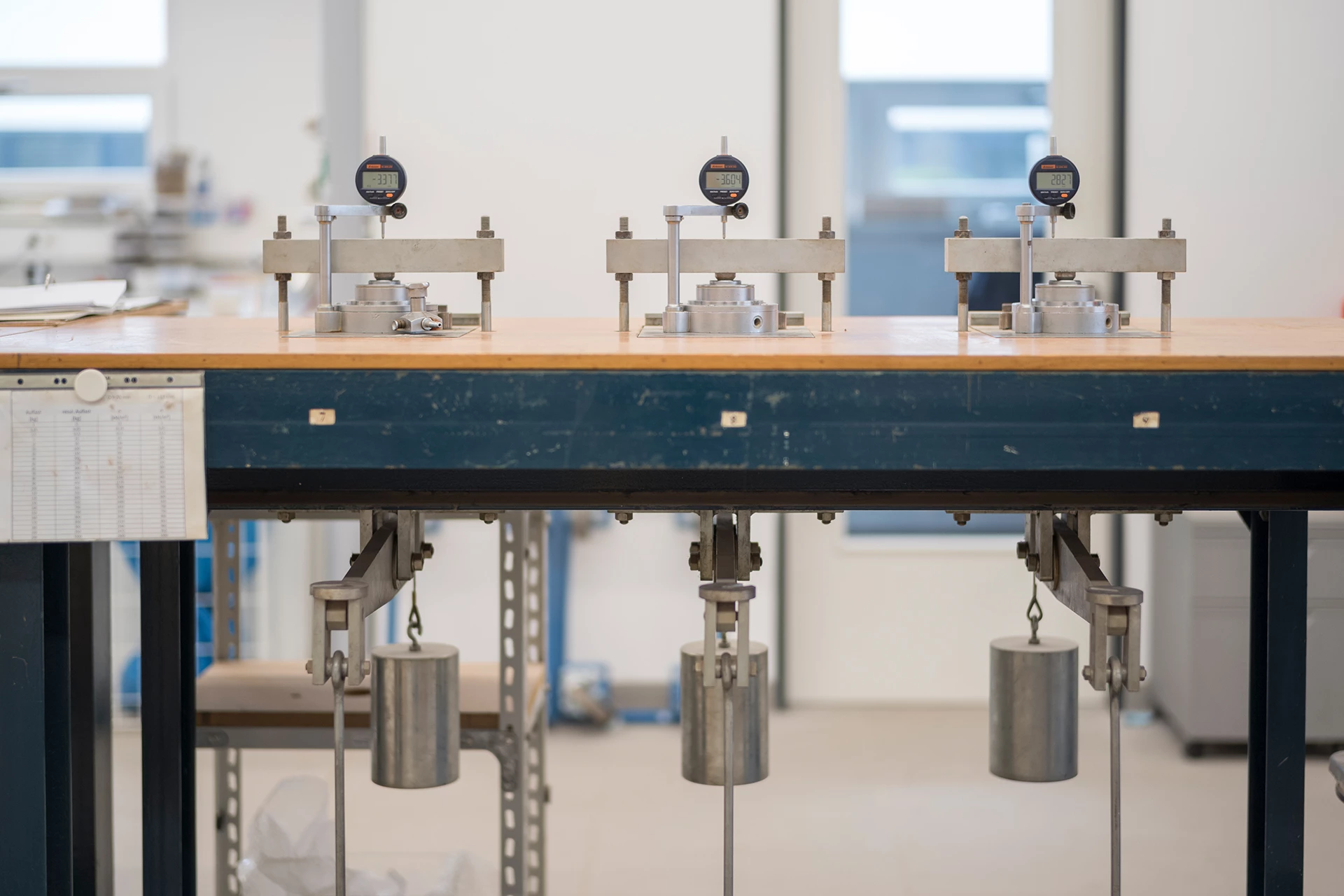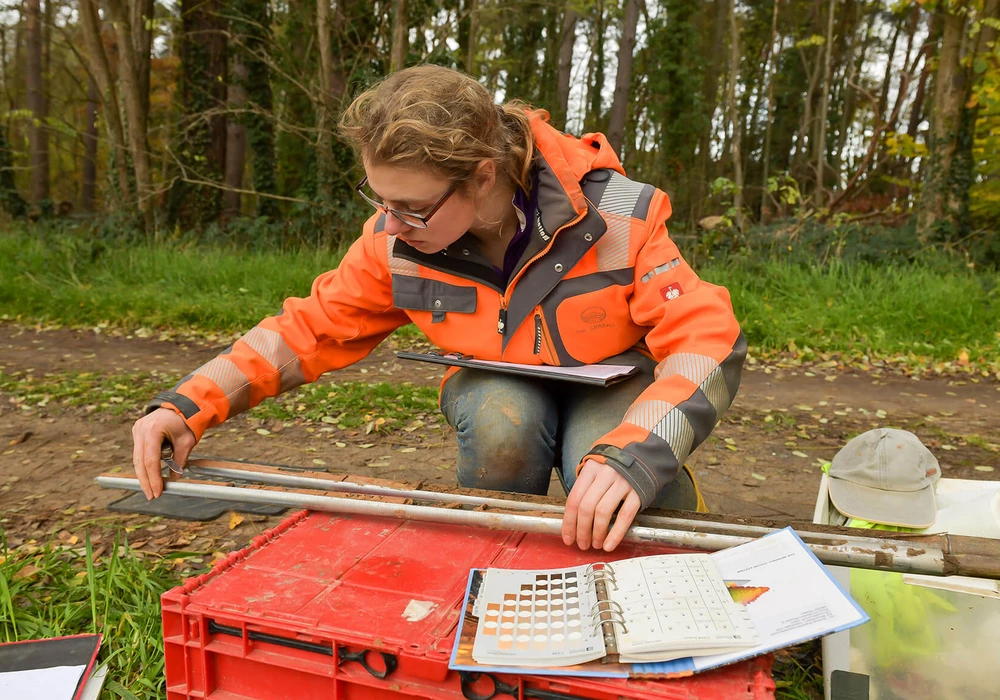
Our geotechnical laboratories
Precision and efficiency for soil and rock mechanics
Dr. Spang GmbH has two state-of-the-art, company-owned laboratories in Witten and Esslingen, which are fully equipped for geotechnical investigations in the field of soil and rock mechanics. Since the company was founded, the geotechnical laboratories have been continuously expanded, optimised and kept at the cutting edge of technology through long-term investment planning. The laboratory in Witten was most recently extensively expanded and modernised in 2024. Our experienced and competent laboratory team now carries out comprehensive geotechnical analyses on a total area of 650 m². At least six full-time building material testers, supported by trainees, guarantee that the tests are carried out in a precise and reliable manner.
Core competences and examination procedures
Comprehensive geotechnical field work
Precision and reliability on site
Our fieldwork is designed to collect precise geotechnical data that is essential for the planning and implementation of construction projects. Our field work is the basis of our precise and in-depth geotechnical analyses. We offer a wide range of specialised services with state-of-the-art equipment and an experienced team. Our specialised technicians and engineers use state-of-the-art methods and equipment to obtain accurate and reliable data. By immediately processing and analysing the samples obtained, we can deliver fast and precise results that enable efficient and targeted project planning.

Comprehensive geotechnical field work
The extensive analysis data from the combination of these diverse methods ensures a detailed exploration and evaluation of the geotechnical conditions, which are essential for safe and efficient project planning.